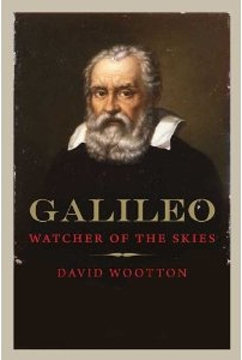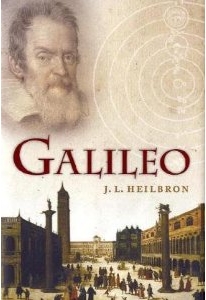- HOME
- INTRO TO THE FORUM
- USE AND MISUSE
- BADLY WRITTEN, BADLY SPOKEN
- GETTING
TO KNOW ENGLISH - PREPARING FOR ENGLISH PROFICIENCY TESTS
- GOING DEEPER INTO ENGLISH
- YOU ASKED ME THIS QUESTION
- EDUCATION AND TEACHING FORUM
- ADVICE AND DISSENT
- MY MEDIA ENGLISH WATCH
- STUDENTS' SOUNDING BOARD
- LANGUAGE HUMOR AT ITS FINEST
- THE LOUNGE
- NOTABLE WORKS BY OUR VERY OWN
- ESSAYS BY JOSE CARILLO
- Long Noun Forms Make Sentences Exasperatingly Difficult To Grasp
- Good Conversationalists Phrase Their Tag Questions With Finesse
- The Pronoun “None” Can Mean Either “Not One” Or “Not Any”
- A Rather Curious State Of Affairs In The Grammar Of “Do”-Questions
- Why I Consistently Use The Serial Comma
- Misuse Of “Lie” And “Lay” Punctures Many Writers’ Command Of English
- ABOUT JOSE CARILLO
- READINGS ABOUT LANGUAGE
- TIME OUT FROM ENGLISH GRAMMAR
- NEWS AND COMMENTARY
- BOOKSHOP
- ARCHIVES
TIME OUT FROM ENGLISH GRAMMAR
This section features wide-ranging, thought-provoking articles in English on any subject under the sun. Its objective is to present new, mind-changing ideas as well as to show to serious students of English how the various tools of the language can be felicitously harnessed to report a momentous or life-changing finding or event, to espouse or oppose an idea, or to express a deeply felt view about the world around us.
The outstanding English-language expositions to be featured here will mostly be presented through links to the websites that carry them. To put a particular work in better context, links to critiques, biographical sketches, and various other material about the author and his or her works will usually be also provided.
Towering intellect in Renaissance ushers in Scientific Revolution
Two new biographies of Galileo Galilei paint masterly depictions of the controversial Renaissance-era scientist, mathematician, and accomplished writer who played a towering role in the Scientific Revolution, proving and championing the heliocentric view that the Sun is the center of the universe and debunking the age-old geocentric belief that the Earth held that distinction. This put him at great odds with the Roman Catholic Church, which excommunicated him for heresy and placed him under strict house arrest towards the end of his life.

In the first book, Galileo: Watcher of the Skies (Yale University Press, 328 pages), University of York historian David Wootton boldly speculates about Galileo’s motives and the overall trajectory of his life. “Wootton explains right at the beginning how the surviving documentation has long been winnowed and spun by friends and scholars eager to paint Galileo as a good Catholic,” says Owen Gingerich in his review of Galileo: Watcher of the Skies in the December 24, 2010 issue of The New York Times. “His own spin is that for Galileo, cosmology was paramount over theology and Copernicism proved ‘the fundamental insignificance of the human species.’”

In the other book, Galileo (Oxford University Press, 508 pages), J. L. Heilbron, University of Berkeley emeritus professor of the history of science, offers a witty and ironic account of Galileo’s life that’s rich in scientific detail. He “makes no big issue of any religious unorthodoxies on Galileo’s part beyond his Copernicism, though surely there must have been some,” says Gingerich in his review of the book in the same article in the Times. “Unlike Wootton, [Heilbron] doesn’t see any secret unbelief underneath the public Catholicism, noting in passing that when Galileo, near the end of his life, was under a strict house arrest on charges of heresy, Urban VIII granted him special permission to attend Mass at a nearby church.”
In another review of Galileo: Watcher of the Skies in the December 22, 2010 issue of TimesOnline.com.uk, Claudio Vita-Finzi observes: “Wootton boldly presents his book as an intellectual biography which cannot be isolated from contemporary attitudes to tradition and innovation, and which cannot focus on Galileo’s ideas without considering his personality and personal relations.”
Of Heilbron’s Galileo, Vita-Finzi says: “John Heilbron is at pains to reassure us that his Galileo is not simply a mathematician but a mathematician who was also musician, artist, writer, philosopher, gadgeteer, observer, draughtsman and craftsman, and above all purveyor of good taste in the arts and the sciences, who settled on maths only to avoid a career in medicine. In fact, Heilbron’s ultimate aim is to show that until he turned forty-five – and trained his telescope on the sky – Galileo was a patrician humanist. He then became a quixotic and fearless scientific knight errant.”
Read Owen Gingerich’s “Starry Messenger” in The New York Times now!
Read Claudio Vita-Finzi’s “Galileo's explosive life and legacy” in TimesOnline.com.uk now!
ABOUT THE BIOGRAPHERS:
David Wootton is Professor of History at the University of York. He is the author of Bad Medicine: Doctors doing harm since Hippocrates, published in 2006. He works on the intellectual and cultural history of the English speaking countries, Italy, and France, for the period covering 1500-1800. Before coming to York, he had held positions in history and politics at four British and four Canadian universities and visiting postions in the United States. He was educated at Oxford and Cambridge.
John Lewis Heilbron is an American historian of science who is best known for his work in the history of physics and the history of astronomy. He is Professor of History and Vice-Chancellor Emeritus (Vice-Chancellor 1990-1994) at the University of California, Berkeley, senior research fellow at Worcester College, Oxford, and visiting professor at Yale University. He received his AB and MA degrees in physics and his PhD in history from the University of California, Berkeley.







